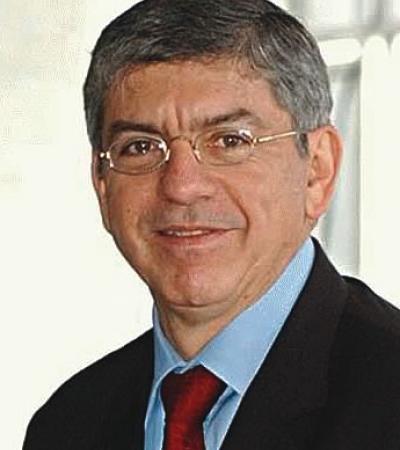César Gaviria Trujillo, former president of Colombia (1990–94) and secretary general of the Organization of American States (1994–2004), was awarded the 2008 Notre Dame Prize for Distinguished Public Service in Latin America at a ceremony at the University of Notre Dame on September 19, 2008. In his long and illustrious career, he has provided vital leadership to the nourishment of democratic institutions in the Americas.
The 2008 Matching Prize, upon President Gaviria’s recommendation, was awarded to Fundación Colombia Presente, a nonprofit organization which promotes solidarity, social responsibility, and tolerance among citizens at every level of Colombian society.
Personally quiet and unassuming, Gaviria has nonetheless been a constant, reassuring leader in time of crisis and one of the Americas’ most effective mediators and consensus-builders. During his almost 40 years of public service, he has been a powerful advocate for democracy in Latin America and a steadfast proponent of human rights and economic reform.
An economist who grew up in Colombia’s coffee-growing heartland, Gaviria began his career shortly after graduating from Bogotá’s prestigious Universidad de los Andes. At age 23, he was elected city councilman of his hometown of Pereira. Appointed the city’s mayor four years later, he quickly went on to serve in the national Congress. By age 31, he was taking on leadership posts—first the vice-minister of development, then president of the Commission for Economic Affairs, and later the president of the House of Representatives, just shy of a decade after first being elected to the house.
As cochair of the Liberal Party, he managed Virgilio Barco´s successful presidential campaign in 1986. Subsequently, he served as minister of finance and minister of the interior in the Barco administration, playing a key role in beginning peace negotiations with the M-19 guerrilla group. For three years, he found time to write a weekly economics column for El Tiempo, the country’s leading newspaper.
In 1990, Gaviria took the helm as president of Colombia during a period of serious challenge to the country’s democracy. Guerilla groups and powerful, highly organized narco-traffickers threatened the power of the state; the presidential campaign was marred by extreme political violence. Stepping in to fill the shoes of Liberal candidate Luis Carlos Galán, one of three candidates assassinated before the elections, Gaviria was elected after a campaign conducted, for security reasons, almost entirely on television.
In his four years as president, Gaviria confronted the drug cartels, continued efforts to promote peace with various guerilla groups and reintegrate armed rebels into civil society, and modernized the Colombian economy.
Perhaps most importantly, he opened up the political process in Colombia by marshalling the country through a plebiscite and the election of a pluralist constituent assembly to write a new, more democratic Constitution. With new mechanisms for popular inclusion, a stronger and more independent judicial system, an independent Central Bank, and more government accountability, the Constitution expanded political participation and strengthened both the rule of law and checks and balances between branches of government.
Following his presidency, Gaviria served two terms as secretary general of the Organization of American States, the region’s principal multilateral forum for strengthening democracy, promoting human rights, and confronting shared problems. He used his considerable skills as statesman and mediator to reinvigorate the inter-American agenda, ease tensions across the region, and foster regional economic integration.
Under Gaviria’s leadership, the OAS adopted the Inter-American Democratic Charter (2001), establishing the region’s unequivocal commitment to democracy and human rights. On his watch, the OAS took increased responsibility for the Summit of the Americas process, which gathers heads of state to consider regional issues.
Gaviria has been instrumental in defusing numerous crises in the region. From November 2002 to May 2003, he undertook an unprecedented effort to facilitate talks between the Venezuelan government and representatives of the opposition.
Since 2005, Gaviria has been head of Colombia’s Liberal Party, taking on the task of revitalizing one of the oldest political parties in the Americas. He continues to play a vigorous role in his country and the region.
In 2002, the National Democratic Institute paid tribute to Gaviria’s leadership and the role of the OAS in strengthening democratic values when it presented the OAS with the W. Averell Harriman Democracy Award. In the same year, Gaviria was the recipient of the Washington Times International Courage in Leadership Award.
A member of the Club de Madrid and an Inter-American Dialogue associate, Gaviria holds honorary degrees, among others, from Northeastern University, the University of Miami, and the Universidade Estácio de Sá.






